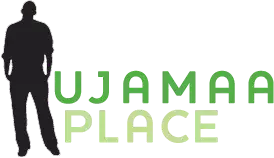More about Ujamaa Place

Ujamaa Place has a long history of supporting participants in building positive lives for themselves and moving into contributing roles in society through their own Theory of Transformation. Ujamaa Place has successfully transformed over 5,000 men and has maintained a 4% recidivism rate, compared to 68% nationally, according to the National Institute of Justice.
Ujamaa Place will provide comprehensive wraparound support to each household during the course of the pilot, including:
- Serving as housing navigators for participants and landlords
- Providing supportive services and case management with an emphasis on employment, education, and stability.
- Making connections to additional community resources as needed
- Providing tenant education and supporting positive landlord tenant relationships
More about HousingLink

The mission of HousingLink is "to improve people's lives through information expanding their affordable rental choices." Housinglink provides an easy to use platform to list and find affordable housing options across the Twin Cities, provides educational resources and support to renters and property owners and conduct research that is often used by policymakers to shape affordable housing policies and programs like RHSP.
HousingLink will serve as the access fund administrator and provide technical and navigational program support to the city and partner organizations, including:
- Processing program applications
- Providing additional support for navigation of landlord/tenant issue
- Managing the access fund and claims process
- Providing programmatic support for property owners
Program Evaluation

RHSP will be implemented and tested over the course of 18 months with a goal of housing 20 residents total and supporting them in maintaining housing stability. RHSP is partnering with the Minnesota Justice Research Center (MNJRC) to measure, track and report on program impact and success both in outcomes and qualitative participant and landlord experiences.
The MNJRC is a nonpartisan nonprofit organization seeking to be broadly inclusive in our definition of community. Through research, education, and policy development, we give our community the information and tools needed to create a criminal justice system that aligns with our commonly-held values. The MNJRC works with partner agencies and organizations to conduct practical, high-impact research, analysis, and evaluation. Whether this is an assessment of long-standing law enforcement practices or assisting with the design of an evaluation model for a new diversion or re-entry program, our goal is to understand what works, why it works, and whether it is effective.